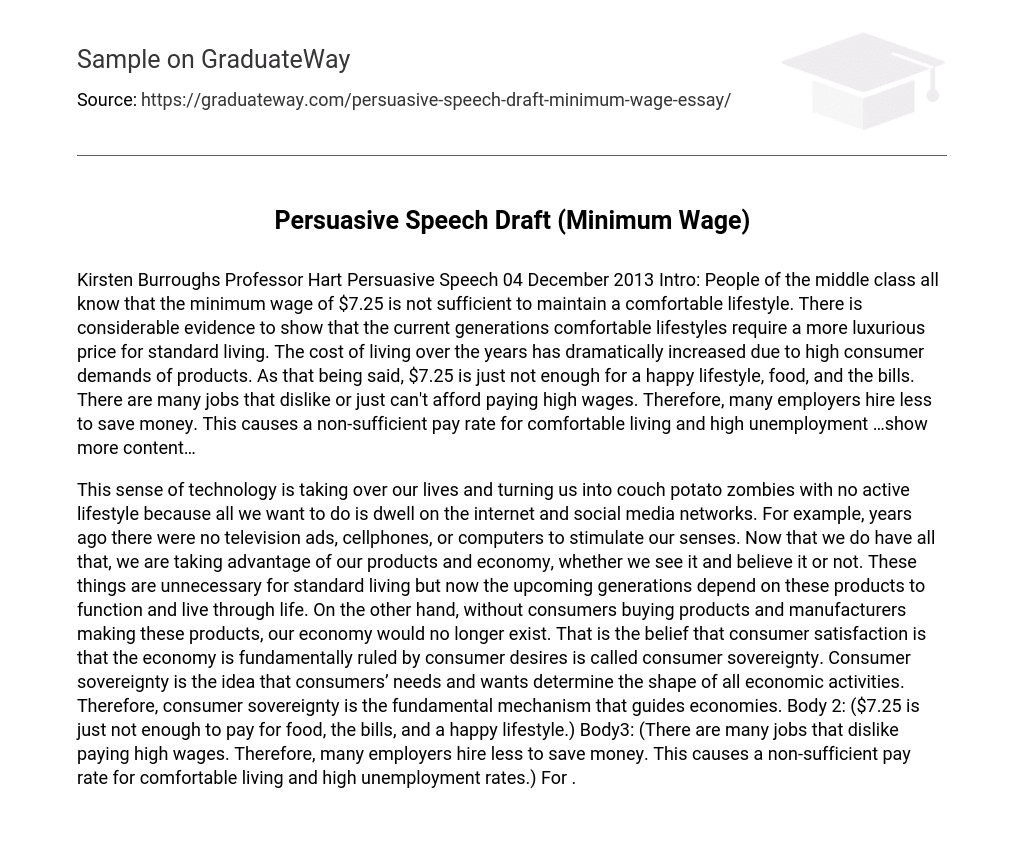People in the middle class are cognizant that the minimum wage of $7.25 is insufficient for maintaining a satisfactory standard of living. Ample evidence supports the idea that the present generation’s quality of life requires a higher expenditure. The escalating demand from consumers for goods has caused a significant increase in living costs over time. Consequently, $7.25 is inadequate for providing a contented lifestyle, covering expenses such as food and bills. Numerous employers either have an aversion to or cannot afford to offer high wages, resulting in reduced hiring as a means to save money. As a consequence, there exists an insufficient remuneration rate for comfortable existence and elevated unemployment levels.
This overwhelming presence of technology is exerting control over our lives and causing us to become passive individuals who are consistently fixated on the internet and social media platforms. Previously, television advertisements, mobile phones, and computers did not exist to captivate our attention. Nonetheless, as these gadgets became accessible, we have grown dependent on them for our everyday tasks and to maintain economic stability. Despite their non-essential nature in terms of survival, the younger generations now heavily depend on these devices to navigate life’s challenges.
Consumer sovereignty is the belief that the economy relies on consumers buying products and manufacturers producing them. It states that consumer desires ultimately govern the economy. Consumer sovereignty dictates that all economic activities are influenced by consumers’ needs and wants, making it a fundamental mechanism in guiding economies.





